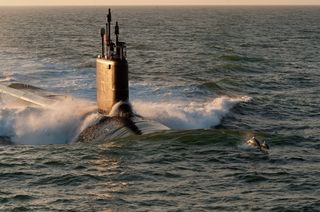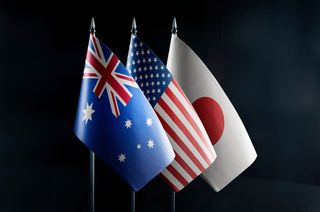US News & World Report
By Nicole Hemmer
This is the last article you should ever read about the results of a straw poll.
Over the weekend, retired neurosurgeon Ben Carson won the Southern Republican Leadership Conference's straw poll. He will not win the Republican nomination.
This fact has done little to dint the flood of commentary about the poll. And we'll see even more straw-poll punditry in August, when candidates participate in the famous Iowa straw poll. So what, exactly, can these polls tell us?
Not much. For one, they have relatively little predictive power. That's in part due to the timing. CNN called the straw poll "the first major survey to take the temperature of the Republican presidential field in the south." Taking the field's temperature in May 2015 is akin to checking the weather today to see if you'll need a jacket in six months — you may be able to scrape a small bit of insight from the data, but it's far less useful than historical trends or polls taken closer to the date. How a campaign is doing in August doesn't tell us much about how it will fare six months later. The Iowa poll's winner in 2011 was former Minnesota Rep. Michele Bachmann. In the 2012 caucus, Bachmann came in sixth.
While winning a straw poll many not mean much, candidates worry that losing one can spell disaster, especially when expectations are high. Increasingly, that means candidates simply choose not to participate, making the results even more useless. Former Florida Gov. Jeb Bush has already announced that he is skipping the Iowa poll, just as Arizona Sen. John McCain did in 2007 and former Massachusetts Gov. Mitt Romney did in 2011. Mike Huckabee, the former governor of Arkansas who is facing high expectations in the state that legitimized his 2008 candidacy, is passing on the Iowa poll as well.
Fewer top-tier candidates means fewer voters. Since 1999, significantly fewer voters have participated in the Iowa straw poll, with about 40 percent fewer votes cast in 2007 and about 29 percent fewer in 2011.This led the Iowa Republican Party to debate scrapping the poll. In the end, though, they opted to keep it because there is one thing the Iowa straw poll does very well: It makes money.
The Iowa straw poll isn't just a temperature-taking exercise — it's a fundraiser for the state GOP. And it rakes in big bucks: In 2011, Bachmann spent $2 million to nab the top spot. Because a straw poll can help a second-tier candidate grab the spotlight — a prize they're willing to spend a lot of money on — it is the best way to spin straw into gold this side of a Grimm fairy tale.
For voters, though, the straw polls offer little insight into the state of the race or the viability of candidates. So when it comes to straw polls, feel free to ignore them. Let campaigns throw away their money and pundits waste their time. You've got better things to do with both.
This article was originally published in US News & World Report




